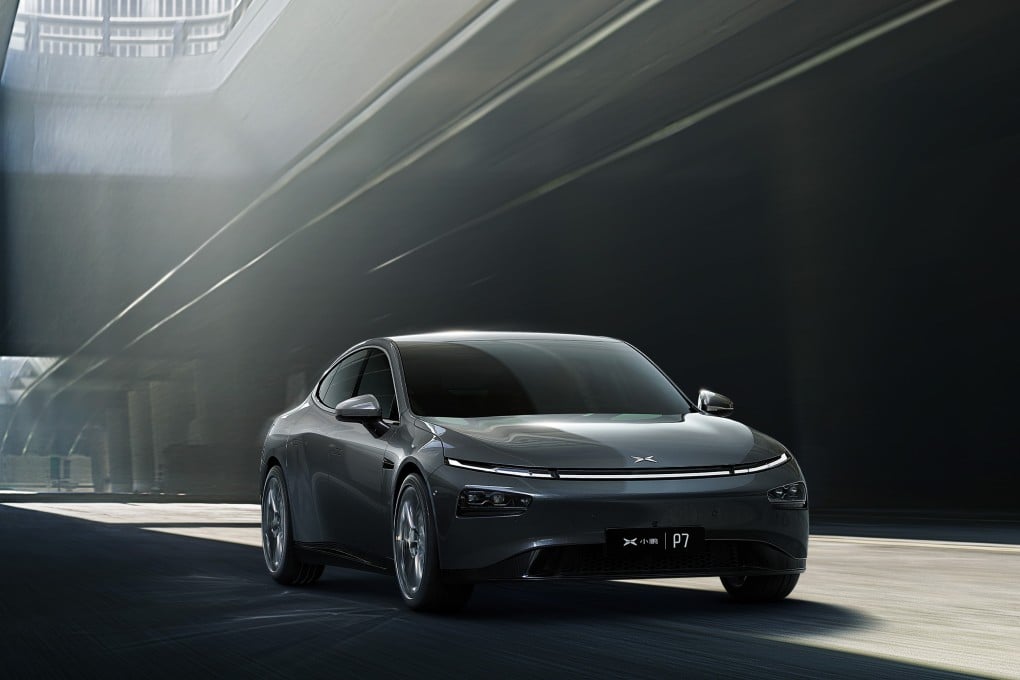Xpeng bets big on P7 sports car to help drive turnaround in China’s EV market, challenge Tesla
- The P7 electric sports car marks the first Level 3 autonomous driving-ready production vehicle made available in China
- The new model is expected to intensify Xpeng’s rivalry with Tesla in the world’s largest car market

“Our ability to launch the P7 in the challenging conditions of the Covid-19 crisis is a testament to the strength of our young company,” said He Xiaopeng, co-founder, chairman and chief executive of Guangzhou-based Xpeng, at the car’s online launch on Monday.
The company’s second production model, which follows its G3 electric sport utility vehicle’s commercial release in 2018, is now available for order in China in three versions and eight configurations. Deliveries will start at the end of June, priced from 229,900 yuan to 349,900 yuan (US$32,462 to US$49,404) after subsidies.
The launch of the P7, which Xpeng unveiled in the Auto Shanghai show in April last year, comes at a time when China’s car industry is searching for momentum to overcome the challenges brought by the pandemic, which has upended sales and manufacturing in the world’s largest car market.
Car sales in China fell for the 21st consecutive month in March. First-quarter sales totalled 3.7 million vehicles, down 42 per cent from a year ago, according to data released by the China Association of Automobile Manufacturers.
